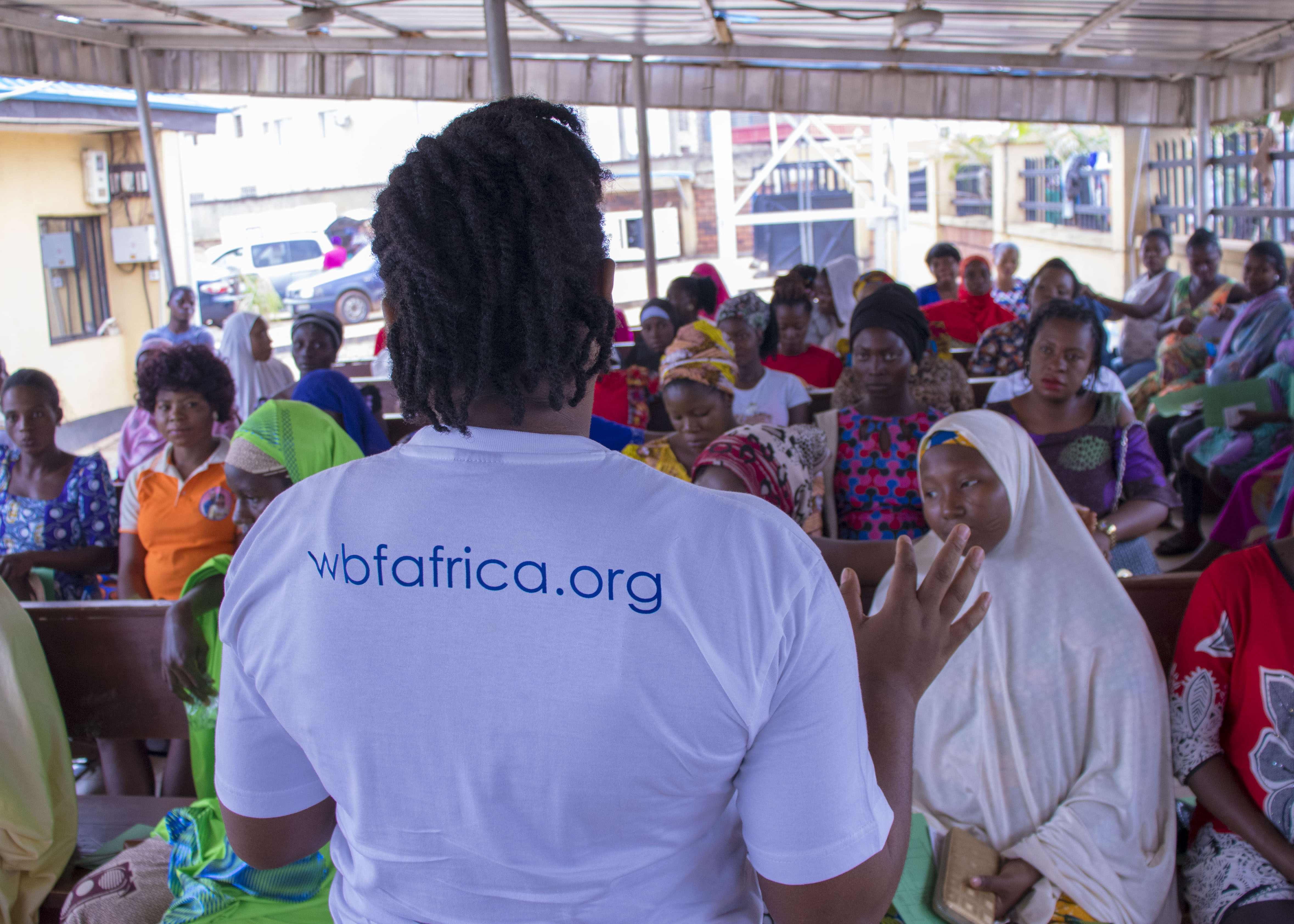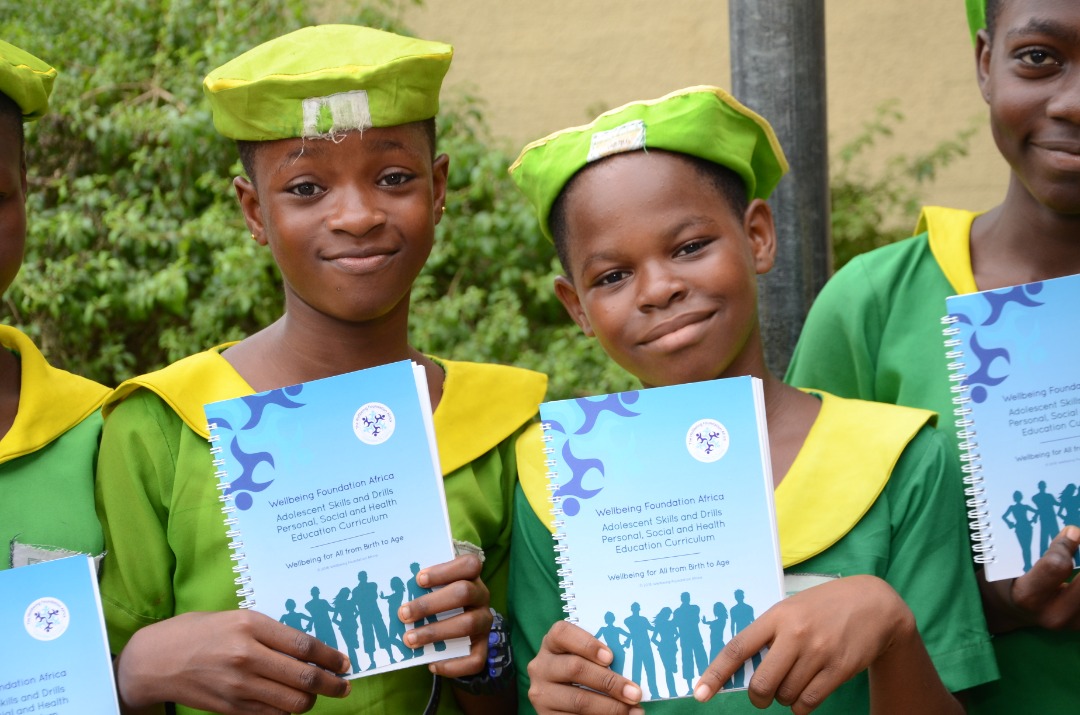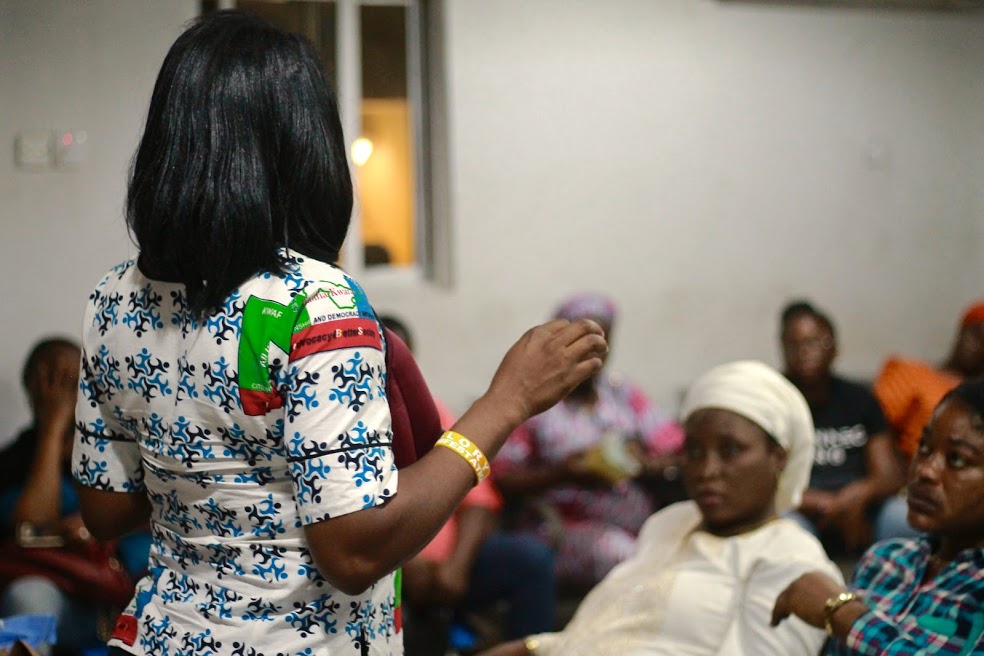
The Wellbeing Foundation Africa was founded in 2004 by Her Excellency Mrs Toyin Ojora Saraki, with the aim of improving health outcomes for women, infants and children. At the WBFA, we combine our programmes with advocacy work in Nigeria and around the world.
Over 200,000 women have taken part in our flagship ‘MamaCare’ classes in Nigeria. Despite dire national maternal mortality rates, we have not yet lost a single MamaCare mother. Our WBFA midwives transform the lives of mothers, their children and communities – and for whom no topic is off-limits.
Our Emergency Obstetric and Newborn Care (EmONC) programme is run in partnership with the Liverpool School of Tropical Medicine, the oldest and most established school of tropical medicine in the world, and Johnson & Johnson, one of the largest global health companies. We implement the EmONC training programme in Kwara State as part of a unique partnership model, bringing together an esteemed higher-education institution, the private sector and a civil society organisation.
Our #MaternalMonday campaign was conceived as a platform for mothers and our WBFA midwives to share their knowledge, experiences & best practice. The aim of that sharing exercise is to raise awareness for the improvement of reproductive, maternal, newborn, child & adolescent health. Most importantly, we harness the power of story-telling on social media to share accurate information on maternal health #DevStories
Through a multi-layered strategy of research, advocacy, policy development, community engagement, philanthropy and education, Wellbeing Foundation Africa devises and implements programs which boldly deliver upon the stated objectives of United Nations Sustainable Development Goals Three, Five, and Six: Good Health and Wellbeing, Gender Equality, and Clean Water and Sanitation, respectively. All Wellbeing programs address multiple intersections between these three goals, including, but not limited to:
The need for such global goals are made particularly poignant in the context of Nigeria - a country with health challenges so pronounced, it is among the most-afflicted in the world.
Nigeria’s combination of large population and tremendous potential ensures that success – even moderate success — directly impacts the global numbers on health, wellbeing and progress, pivoting the global paradigm, from counteracting regressive standards to the more positive acceleration of progress.
As such, the Wellbeing Group delivers Nigerian priorities to the global stage to symbiotically advocate on a local level for the global priorities. Prosperous continuums of care and counsel are self-sustaining: healthy mothers make for healthy babies, which has a ripple effect on health of the nuclear family to the community at large, and ultimately transforms the health of nations, continents, and the world.


OBJECTIVES
The prioritisation of global impact, in alignment with the United Nations Sustainable Development Goals (SDG), informs the following three objectives of the Wellbeing Group towards measurable and meaningful outcomes.
OUR GUIDING PRINCIPLES
Throughout all our work, the Wellbeing Foundation Africa promotes and achieves the WHO’s recommendations on how countries can improve quality of care in their health facilities and prevent maternal and newborn deaths, based on its standards for improving quality of maternal and newborn care in health facilities.
Pregnant women should receive the right care, at the right times - WHO recommends a woman sees her health provider at least 8 times during her pregnancy to detect and manage potential problems and reduce the likelihood of a stillbirth or neonatal death. Antenatal care also offers an opportunity for health workers to provide a range of support and information to pregnant women, including on healthy lifestyles, preventing diseases, and family planning.
Newborns should receive essential care immediately after birth -
Newborns should be kept in skin-to-skin contact on their mother’s chest and enabled to breastfeed. They need to be kept clean and warm, and given care for their eyes and umbilical cord. Bathing should be delayed for 24 hours, vitamin K and vaccines given as per national guidelines, temperature monitored, and complications identified and managed. A complete assessment before discharge, normally around 24 hours, serves as a first postnatal check-up.
Small and sick babies should be well cared for in a facility - Small babies (such as preterm babies) are at much greater risk for death during the neonatal period and for long-term health problems and lifelong disabilities. These babies should be kept warm at all times and fed with their mothers’ own breast milk. Mothers should be supported to practise kangaroo mother care as the baby’s condition allows. Very small and sick newborns should be cared for in well-equipped neonatal units and closely monitored by trained staff for complications.
All women and newborns must receive care that prevents hospital-acquired infections - Hospital-acquired infections increase the risk of death and disease, and add to the cost of care and duration in a hospital. Standard precautions are essential to prevent hospital-acquired infections. These include washing hands with soap and water or alcohol-based rub before and after examining a patient, safely storing and disposing of infectious waste and sharp objects, and sterilizing and disinfecting instruments in the labour and delivery room and newborn care area.
Health facilities must have an appropriate physical environment - Health facilities must have water, energy, sanitation, hand hygiene, and waste disposal facilities which are functional, reliable, and safe. The space needs to be designed, organized, and maintained to allow for privacy and facilitate the provision of quality services. Facilities also need to have adequate stocks of medicines, supplies, and equipment.
Communication with women and their families must be effective and respond to their needs - Patients should receive all information about their care and should feel involved in all treatment decisions made. Effective communication between health providers and patients can reduce unnecessary anxiety and make childbirth a positive experience for a woman.
Women and newborns who need referrals can obtain them without delay - Health facilities should have available equipped transport services that operate 24 hours a day, 7 days a week, to transport women and newborns as necessary. A list of known network facilities and their telephone numbers should be readily available. The referral system is also supervised and accountable, with a policy that protects women from financial barriers.
No woman should be subjected to harmful practices during labour, childbirth, and the early postnatal period - Unnecessary and harmful practices can lead to complications and harm mothers and their newborns. These include routine enemas and pubic or perineal shaving before vaginal birth, immediate bathing of the baby, keeping well babies away from the mother, and advertising and promoting breastfeeding substitutes and bottle-feeding.
Health facilities need well-trained and motivated staff consistently available to provide care - All labour and childbirth areas of the health facility should have competent, well- trained staff present 24-hours a day in sufficient numbers to cope with the expected. Common barriers for midwifery personnel to provide quality care include low social esteem, poor pay, long working hours, insufficient staffing, and lack of fully functioning facility environments. It is important to focus on professional education and management that builds on midwife experiences.
Every woman and newborn should have a complete, accurate, and standardized medical record - All babies should receive a birth certificate. Complete, accurate medical recording is important for documenting care, clinical follow-up, early detection of complications, and health outcomes, and helps to identify areas for improvement. Details of newborns, including vaccinations, gestational age, birth weight and examination findings, should be recorded in a system that allows the linking of women and their newborns in all records.
